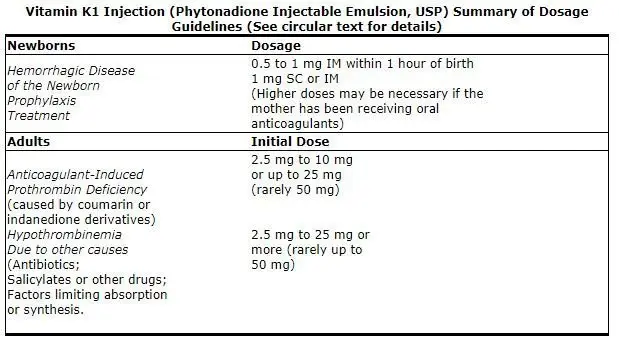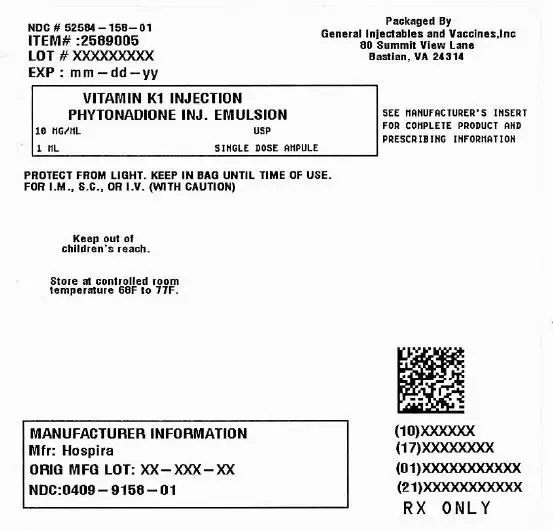Precautions
Drug Interactions
Temporary resistance to prothrombin-depressing anticoagulants may result, especially when larger doses of phytonadione are used. If relatively large doses have been employed, it may be necessary when reinstituting anticoagulant therapy to use somewhat larger doses of the prothrombin- depressing anticoagulant, or to use one which acts on a different principle, such as heparin sodium.
Laboratory Tests
Prothrombin time should be checked regularly as clinical conditions indicate.
Carcinogenesis, Mutagenesis, Impairment of Fertility
Studies of carcinogenicity, mutagenesis or impairment of fertility have not been conducted with Vitamin K1 Injection (Phytonadione Injectable Emulsion, USP).
Pregnancy
Pregnancy Category C: Animal reproduction studies have not been conducted with Vitamin K1 Injection. It is also not known whether Vitamin K1 Injection can cause fetal harm when administered to a pregnant woman or can affect reproduction capacity. Vitamin K1 Injection should be given to a pregnant woman only if clearly needed.
Nursing Mothers
It is not known whether this drug is excreted in human milk. Because many drugs are excreted in human milk, caution should be exercised when Vitamin K1 Injection is administered to a nursing woman.
Pediatric Use
Hemolysis, jaundice, and hyperbilirubinemia in neonates, particularly those that are premature, may be related to the dose of Vitamin K1 Injection. Therefore, the recommended dose should not be exceeded (see ADVERSE REACTIONS and DOSAGE AND ADMINISTRATION).








